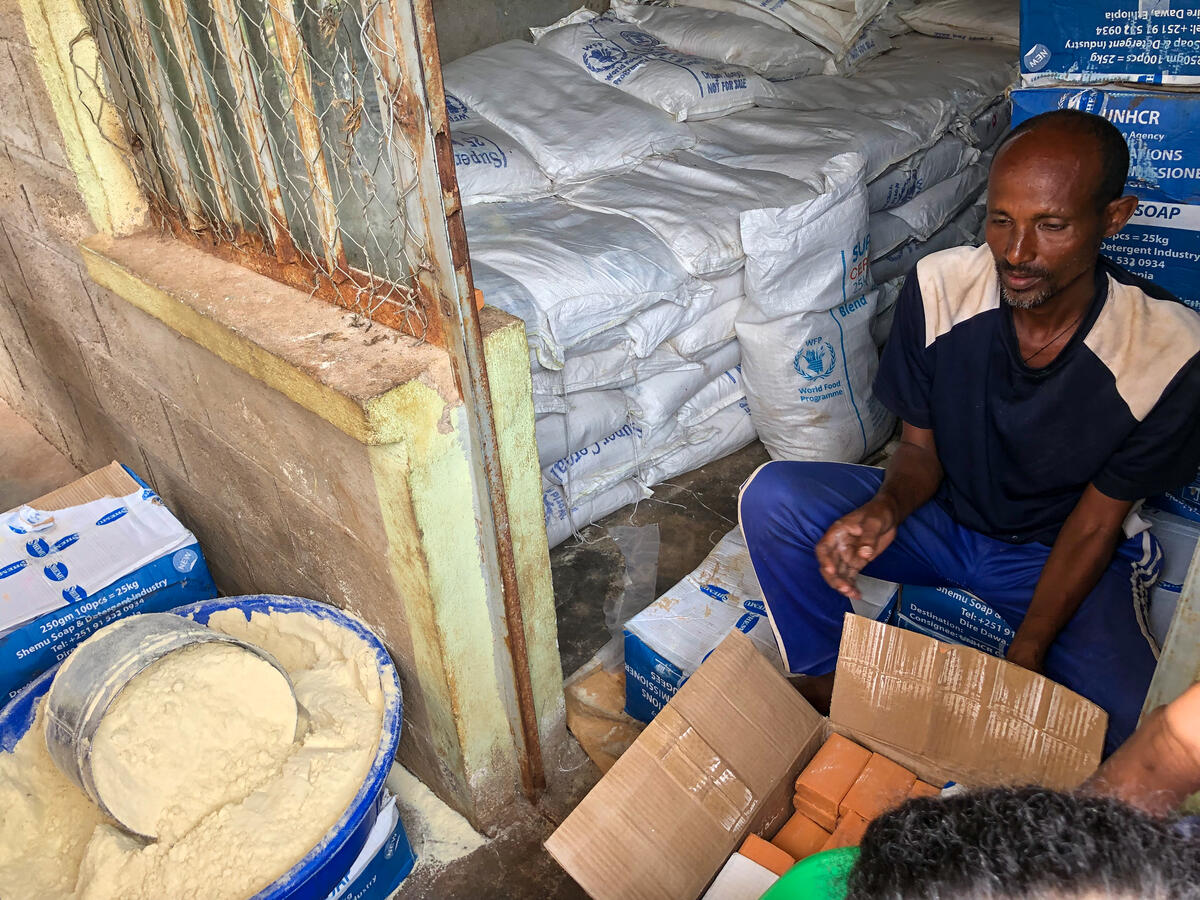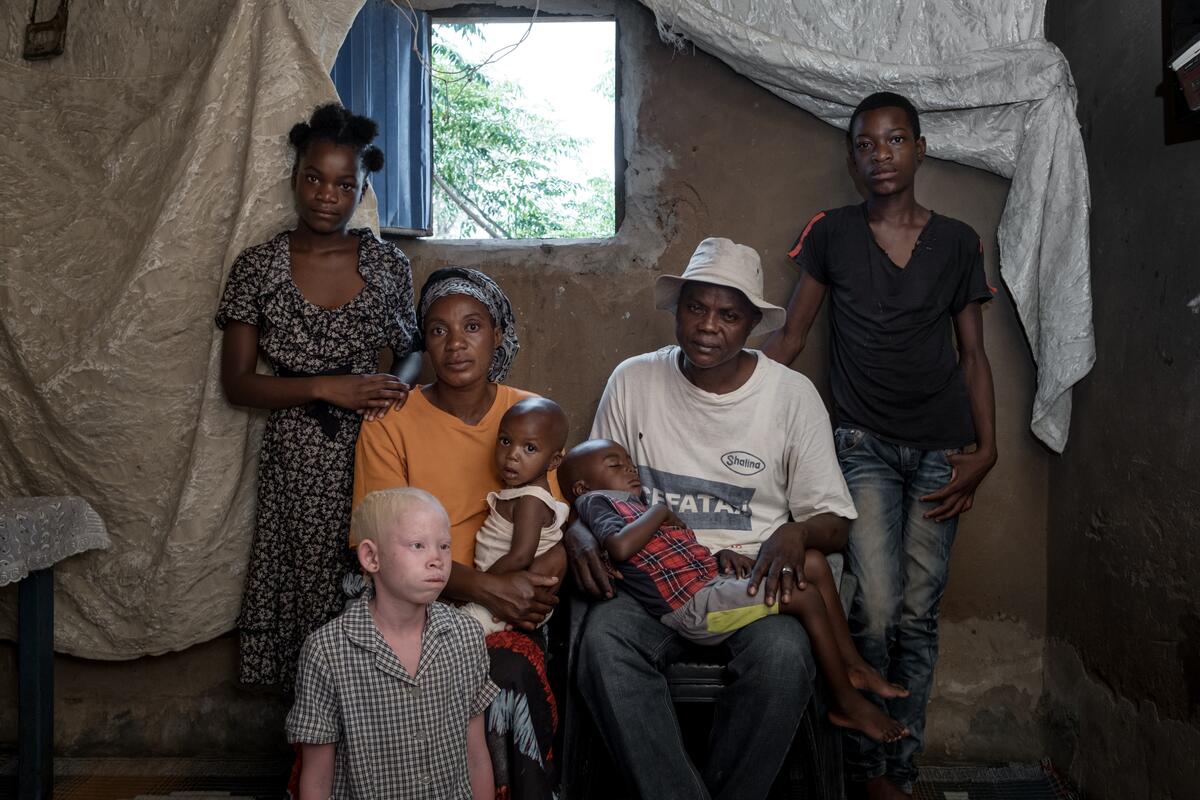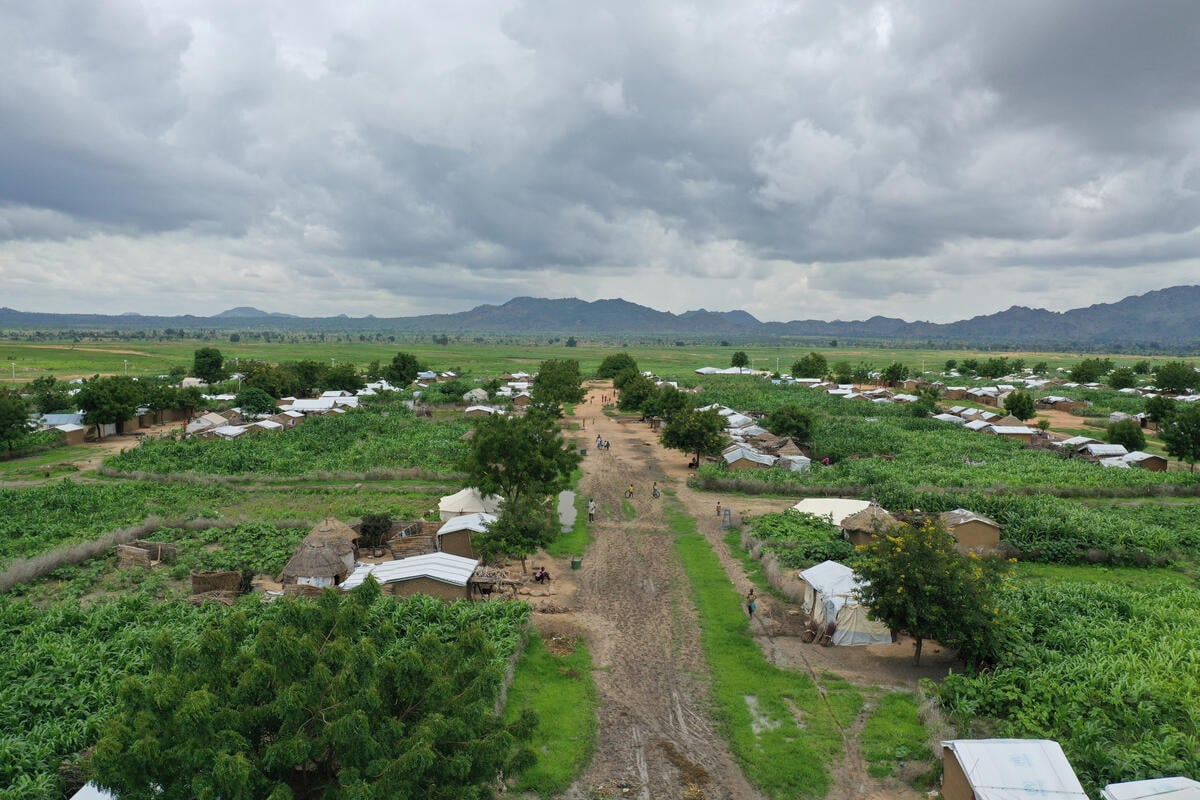WFP, UNHCR, RRS appeal for funding to continue feeding over 750,000 refugees in Ethiopia
WFP, UNHCR, RRS appeal for funding to continue feeding over 750,000 refugees in Ethiopia

The United Nations World Food Programme (WFP), the UN Refugee Agency (UNHCR) and the Ethiopian Government Refugees and Returnees Service (RRS) appealed today for US$73m to provide food rations to over 750,000 refugees in Ethiopia, over the next six months. WFP will completely run out of food for refugees by October, leaving vulnerable families who are dependent on food assistance at risk of undernutrition, micronutrient deficiency, susceptibility to diseases/infection and increased protection risks, the three agencies warn.
Due to protracted funding shortfalls, WFP has already been forced to cut rations for 750,000 registered refugees living in 22 camps and five sites in hosting communities in Afar, Amhara, Benishangul-Gumuz, Gambella, Somali and Tigray regions of Ethiopia.
Food rations for refugees in Ethiopia were first reduced by 16 percent in November 2015, by 40 percent in November 2021, and by 50 percent in June 2022. Food insecurity amongst the refugees has risen as a result of the cuts and is even further compounded by current global limitations to food availability, economic shocks, rising costs of food and energy, the fallout of COVID-19, conflict and insecurity.
To understand the impact of ration cuts on the food security and socio-economic situation of refugees, WFP, UNHCR and RRS conducted a rapid assessment in April which was based on 1,215 households residing in camps located in Afar, Beneshangul-Gumuz, Gambella, and Somali regions.
The results show that more households continued to adopt negative coping strategies by reducing the number of meals eaten in a day, consuming less expensive or less preferred foods, or limiting the portion of the meals served. More households reported to have engaged in demeaning activities, including engaging children in income generation activities, the collection and sale of firewood, while several borrowed cash, relying on friends/relatives for food. This forces refugees to rely on the resources of the hosting community and environment they live in which also increases the likelihood of resource-based conflicts between refugees and host communities.
More resources must be mobilized urgently to meet immediate food and non-food needs of refugees to avert further suffering, whilst similar investments are made to enable sustainable food solutions embedded in the commitments made under the Global Compact for Refugees (GCR)[1] and the Comprehensive Refugee Response Framework (CRRF)[2] for refugees and hosting communities through livelihoods and cash programmes, in line with the UNHCR and RRS strategies. As a short-term measure, WFP and its partners continue to prioritize the needs of children aged 6 to 23 months and pregnant and breastfeeding women under the undernutrition prevention programme (blanket supplementary feeding).
“Three quarters of a million refugees will be left with nothing to eat in just a matter of weeks unless we receive funding immediately,” said Claude Jibidar, WFP’s Representative and Country Director for Ethiopia.
“The priority for us all must be to restore assistance to at least minimum levels for refugees, all of whom are solely reliant on WFP’s cash and food assistance for survival.”
“We have a shortfall of US$73 million for refugees’ minimum needs and we are deeply concerned that if funding cuts continue, they may consider returning to their places of origin when it is unsafe.”
If there is an immediate response from donors, WFP will be able to buy food available in the region and transport it to meet the dietary needs of the refugees. WFP will also transfer cash to the refugees which gives them the choice of how to meet their immediate needs and stimulates local markets.
“We are very concerned about the lack of food for refugees. The continued lack of full rations for refugees, coupled with the impact of the most severe drought that the country has experienced in over 40 years, will greatly undermine the gains made in refugee protection and risk impacting the peaceful co-existence between refugees and their host communities,” said UNHCR’s Deputy Representative in Ethiopia, Margaret Atieno. “We are grateful for what donors have provided so far, but more funding is needed and quickly.”
“Ethiopia, with its progressive refugee policy and commitments, has been striving to ensure the sustainable self-reliance of refugees and host communities with its scarce resources, struggling with recurrent funding gaps from the international community. The subsequent deduction of the overall humanitarian assistance fund for refugees in Ethiopia in recent years has not only affected the immediate basic needs of refugees, but also hindered the long-term intended sustainable self-reliance and co-existence of refugees and host communities.” said RRS Director General, Tesfahun Gobezay.
“The ongoing resource constraints create conflict and stress due to competition over the existing scarce local resources. The persistent budget cuts and the recent 50 percent deduction of the food and cash assistance to refugees from the minimum recommended standard seriously affect the lives of refugees, exposing them to chronic hunger, anaemia, sexual exploitation, and deaths, as more than 85 percent of refugees in Ethiopia are fully dependent on the monthly WFP food rations. This will drawback the positive development of Ethiopia towards ensuring the self-reliance and co-existence of refugees and host communities and above all make the entire life-saving efforts difficult.”
WFP, UNHCR and RRS continue to prioritise the food needs of refugees and have established an effective system to identify the food assistance needs of refugees through biometric verification, ensuring accountability and entitlement to monthly food and cash assistance. The three agencies are calling on all partners to strengthen efforts to address both the medium and long-term food needs of refugees, in line with the Government of Ethiopia’s 2019 Refugee Proclamation, and the commitments contained in the GCR and the CRRF.
Ethiopia hosts more than a million registered refugees and asylum-seekers. Most of them are from South Sudan, Somalia, Eritrea and Sudan. Of these, about 750,000 are fully dependent on humanitarian food assistance. RRS is managing the distribution of food and cash assistance to refugees in a more accountable and transparent manner in accordance with the biometric database. RRS will continue to ensure that asylum-seekers and refugees have access to biometric (level three) registration to meet their assistance and protection needs.
WFP, UNHCR and RRS continue to count on the donor community for extended funding support for the refugees based on the principle of shared responsibility to implement basic humanitarian life-saving activities.
# # #
WFP, United Nations World Food Programme is the world’s largest humanitarian organization, saving lives in emergencies and using food assistance to build a pathway to peace, stability and prosperity for people recovering from conflict, disasters and the impact of climate change. Follow us on Twitter @WFP_Ethiopia and @WFP_Africa
UNHCR, the UN Refugee Agency, protects people forced to flee their homes because of conflict and persecution. We work in over 130 countries, protecting millions of people by responding with life-saving support, safeguarding fundamental human rights and helping them build a better future. Follow us on Twitter @UNHCREthiopia
RRS, the Ethiopian Government Refugees and Returnees Service will continue its long-established commitment to protect refugees in a spirit of global solidarity and in line with the fundamental principles of international refugee law, made highly significant pledges to improve further the rights and services enjoyed by refugees in the country. Follow us on Twitter @RRSEthiopia
For more information please contact:
Claire Nevill, WFP/Addis Ababa, claire.nevill@wfp.org Mob. +251 944 33 4949
Neven Crvenkovic, UNHCR/Addis Ababa, crvenkov@unhcr.org, Mob. +251 948 053 450
Beakal Nigussie, RRS/Addis Ababa, beakaln@rrs.gov.et Mob. +251944100053
[1] The Global Compact on Refugees (GCR), affirmed by the UN General Assembly on 17 December 2018, is designed to promote responsibility-sharing among host countries and communities to better support refugees.
[2] As set out in the 2016 New York Declaration for Refugees and Migrants, the Comprehensive Refugee Response Framework (CRRF) focuses on the importance of supporting countries and communities that host large number of refugees, promoting the inclusion of refugees in host communities and developing a ‘whole-of-society’ approach to refugee responses.







